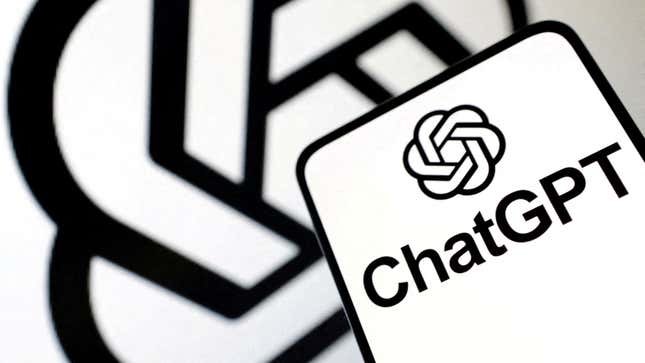
OpenAI just announced that it will let people build their own AI chatbots—dubbed “GPTs”—for personal and professional use. Onstage at the ChatGPT maker’s first developer conference on Monday (Nov. 6), CEO Sam Altman took just a few minutes to create a bot that offers startup advice. That demo echoed his former role as head of Y Combinator, which funds early-stage startups.
This month, OpenAI will launch an online store where anyone can upload a customized GPT. The company will pay the most-used GPTs a portion of revenue, Altman said, highlighting how it’s taking steps to build a product ecosystem.
“Over time, GPTs and assistants are precursors to agents [that] are going to do much more,” he added during the San Francisco conference. “They’ll gradually be able to plan and perform more complex actions on your behalf.”
The rollout of GPTs comes as OpenAI—which launched ChatGPT about a year ago—said it has reached 100 million weekly active users. The company appears to be taking a page from Apple, which launched the App Store a year after releasing the iPhone in 2007, paving the way for the explosion of apps.
OpenAI reveals a cheaper, more capable AI model
Among its other announcements at the conference, OpenAI unveiled GPT-4 Turbo, a new AI model that is more capable than GPT-4—which only launched in March. For example, the knowledge cutoff for its newest offering has been updated from Sept. 2021 to April 2023. With GPT-4 Turbo, users can now insert more than 300 pages of text in a single prompt.
OpenAI has also cut prices across its different AI models. That move comes as AI chatbots—from Anthropic, Google, and, most recently, Elon Musk (who co-founded OpenAI)—continue to proliferate, pushing it to stay ahead of the competition. The company said GPT-4 Turbo is up to three times cheaper than GPT-4.
OpenAI’s chatbot may be its signature product, but the San Francisco–based company also targets large corporations with ChatGPT Enterprise, which offers added security and privacy. More than 92% of Fortune 500 companies now use the platform, up from 80% in August, showing that big businesses are increasingly willing to invest in generative AI.
What’s next for OpenAI and Microsoft’s partnership?
Microsoft CEO Satya Nadella made a brief appearance at the conference, telling Altman, “We love you guys.” No wonder: OpenAI has helped Microsoft boost its cloud computing revenue, put Bing back in the spotlight, and given the company a head start over its Big Tech rivals on releasing AI products to the public. Microsoft has been investing in OpenAI since 2019.
So, what’s next for the multibillion dollar, long-term alliance? Nadella said the first task is to build on systems such as Azure’s cloud computing platform and supercomputers so OpenAI can make the best AI models. Enabling the chatbot maker to push forward with its mission requires Microsoft “to be on top of our game,” he added.
Altman’s response: “I think we have the best partnership in tech.”